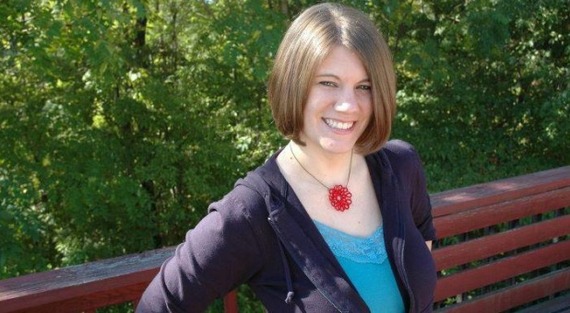In a recent article for the website of the Union for Reform Judaism, I generated some controversy by quoting two books by Christian authors. A few comments and even personal phone calls wondered why a rabbi would quote Christian sources when they are so many good Jewish ones.
I was taken aback by the concern. Does any one religion have a monopoly on truth? Are we so insecure about our own identity that we can't learn from and acknowledge others? We are missing out on our spiritual growth and depth if we ignore thoughtful voices from other traditions. Among the most prominent and relevant for me--especially as part of the oft-debated Jewish millennial generation--is Christian blogger and speaker Rachel Held Evans.
I have been a fan of Rachel's for several years and recently got the chance to meet her. While acknowledging we come from very different places of belief and practice, I have learned a great deal from her. So can all of us concerned about the future of Jewish and religious life in America more broadly. Here's why Rachel is such an important voice.
1. She's Real: Many millennials describe themselves as "spiritual but not religious." This description means different things. What tends to unite those who say it, though, is a suspicion of organized religion. They find it focused too much on institutions and beliefs rather than experiences and personal meaning. They are tired of being sold to and told what to believe, and seek instead authentic and trustworthy voices of spiritual depth.
Rachel is one of those voices. Her blog describes her changes in belief and struggle with hard questions. She responds to people's comments and draws from other religious views. She talks about her personal life and is immensely approachable. And unlike some writers with big platforms, she never tries to be too cool.
2. She's relevant: Rachel speaks to the big questions challenging people of faith today. She writes about gay marriage in the evangelical church, relationships, race and gender. It can be easy for popular voices to avoid controversy and write about innocuous matters of faith. Rachel does neither. For working rabbis and pastors who avoid controversy for fear of upsetting a part of our community, we need to take heed. When we take a stand, we make a difference, and people come.
3. She's reasonable: Even though it can generate lots of attention, Rachel does not court controversy for controversy's sake. Her articles are inevitably thorough, mindful of different perspectives, and well-reasoned. She takes a stand without demonizing those who disagree. For millennials turned off by religion's association with right-wing politics, her faithful and reasonable voice is refreshing and inviting.
4. She's rigorous: Readers of any serious blog or newspaper know the difficulty of having serious discussions in the comments section. Taking a risk, Rachel recently devoted six blog posts to a discussion of Matthew Vines book God and the Gay Christian. Each post outlined some of the key issues of the book and several questions to consider. The discussion was rarely flippant. Thousands of participants, from a wide range of views, agreed and disagreed with one another sharply but thoughtfully.
What ultimately makes Rachel a blessing of any thoughtful person today is that she has a serious commitment to faith, but not at the expense of reason. She is not a fundamentalist, but neither is she someone who defaults automatically to the conventional secular morality whenever tough social issues come up. She tries to keep the Bible and the world in serious civil conversation, and the results can teach and inspire us all.
To get a taste of Rachel's voice and insight, check out her top ten quotes here.
